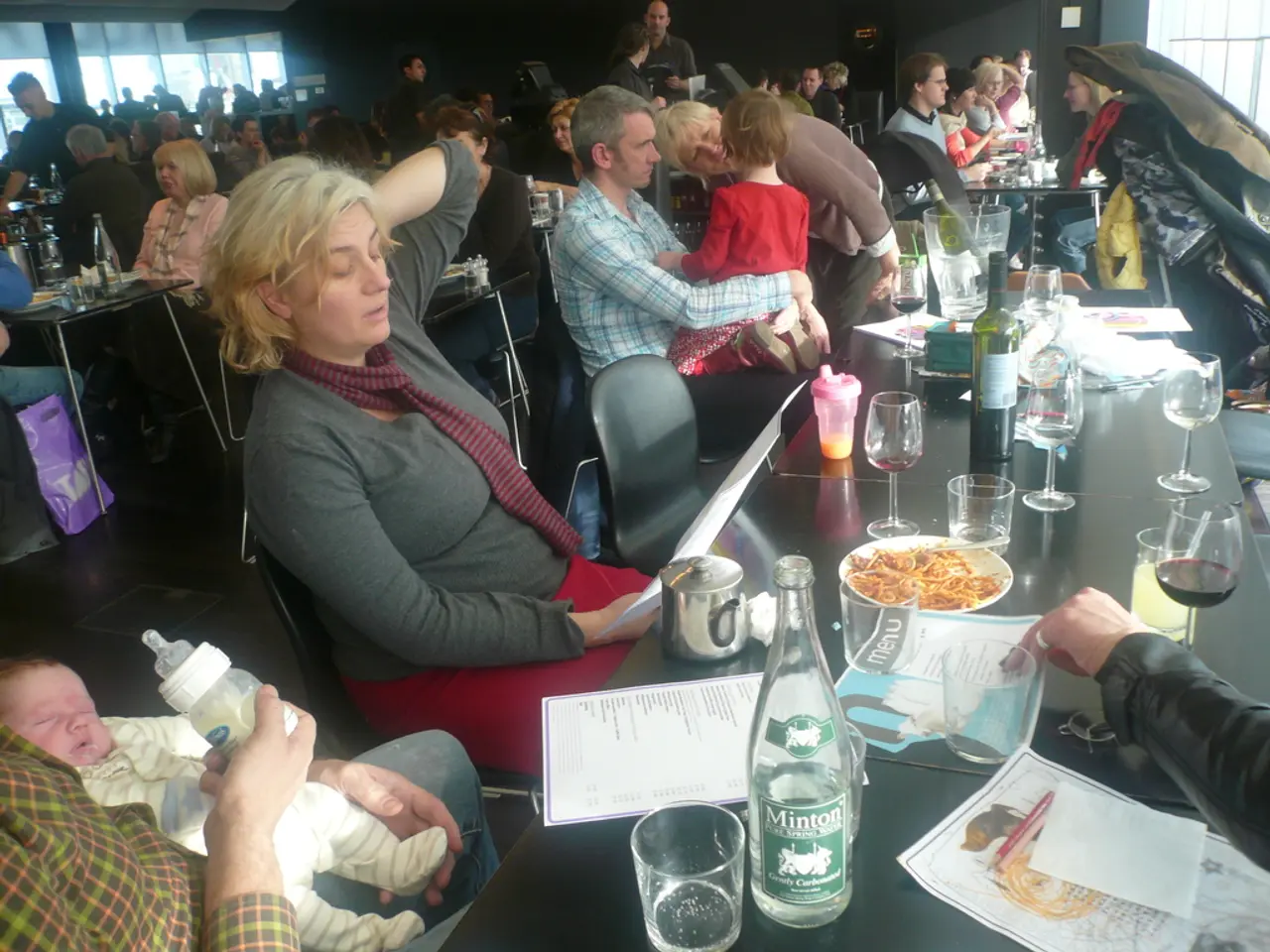Hospitality industry faces threat due to Brits' limited financial means
The British hospitality sector has been grappling with a series of challenges, including tax increases, economic headwinds, and reduced disposable income, leading to closures and job losses. Despite these difficulties, Dishoom, a popular Indian restaurant chain, has managed to maintain its momentum, securing a significant investment and reporting positive financial results.
Challenges Facing the Hospitality Sector
The first half of 2025 saw closures at a rate of two premises per day, with the food-led sector particularly affected. This contraction is partly due to increased costs from National Insurance contributions and the National Living Wage, which have pressured traditional operators with labour-intensive models. Consumers' reduced discretionary spending has further strained the sector, with economic challenges leading to subdued spending affecting both restaurants and bars.
While the sector is expected to grow, reaching USD 72.76 billion by 2030, the current economic environment poses immediate challenges. The performance gap between resilient players, such as QSRs, and struggling businesses continues to widen.
Dishoom's Performance and Expansion Plans
Dishoom's turnover in the year ended December 2024 was £137m, with pre-tax profits up from £7.4m to £10.1m. The growth was driven by the underlying performance of the established restaurants, alongside the full year contribution from two existing sites opened in the second half of 2023, and two new sites opened in 2024.
The investment deal, an undisclosed sum, involves Dishoom's co-founders, Shamil Thakrar and Kavi Thakrar, diluting their stakes. Despite this, both co-founders are expected to remain in their roles alongside CEO Brian Trollip and the rest of the executive team.
Future Expansion Plans and Potential Strategies
To succeed in this challenging environment, restaurants might focus on diversifying their offerings, leveraging digital technologies, and enhancing customer experience. Effective cost management and efficient operational models will be crucial for navigating rising costs and maintaining profitability. Any expansion plans would need to consider the current economic climate, focusing on opportunities in resilient markets or adapting offerings to meet changing consumer preferences.
Shamil Thakrar emphasized the importance of continuing to deepen Dishoom's hospitality, providing guests with delicious food, warm service, and maintaining beautiful restaurants, as well as ensuring Dishoom remains one of the best workplaces in hospitality. He expressed excitement about the future of the business and the international opportunities ahead, with Dishoom set to open a new US location in 2026.
Political Concerns and Job Losses
Politicians and representatives from across the UK have voiced concerns about the impact of high taxes on the hospitality sector, with some warning that they are suffocating the sector, especially small businesses, and are putting 'insurmountable burdens' on businesses. UK Hospitality estimated that 69,000 jobs have been lost in the sector since last October.
In April, the growth figures revealed that the economy shrank beyond analysts' expectations in 2025. Alistair Carmichael, Liberal Democrat MP for Orkney and Shetland, said that hospitality is being taxed out of existence, and that is a political choice that needs to be changed.
Dishoom currently operates 10 restaurants, with seven in London, one each in Manchester, Birmingham, and Edinburgh. The budget changes have particularly affected part-time workers in the hospitality sector. The UK hospitality sector's confidence has been low since the Budget, which increased employer taxes on wages and lowered the threshold for businesses to pay these taxes.
In conclusion, while the hospitality sector faces significant challenges, Dishoom's positive momentum and strategic expansion plans, coupled with a focus on enhancing customer experience and cost management, position the restaurant chain well for future growth. However, the broader sector's success will depend on political decisions that support the industry and help businesses navigate these economic headwinds.
- In the face of rising costs from increased taxes, economic instability, and decreased consumer spending, the hospitality sector needs to find ways to adapt and thrive, as demonstrated by Dishoom's successful focus on diversifying, leveraging technology, and enhancing customer experience.
- Despite the economic challenges in the hospitality sector, with increased taxes, reduced consumer spending, and job losses, Dishoom continues to expand, with plans to open a new US location in 2026, illustrating the potential for resilient businesses to grow and succeed even in challenging economic conditions.





